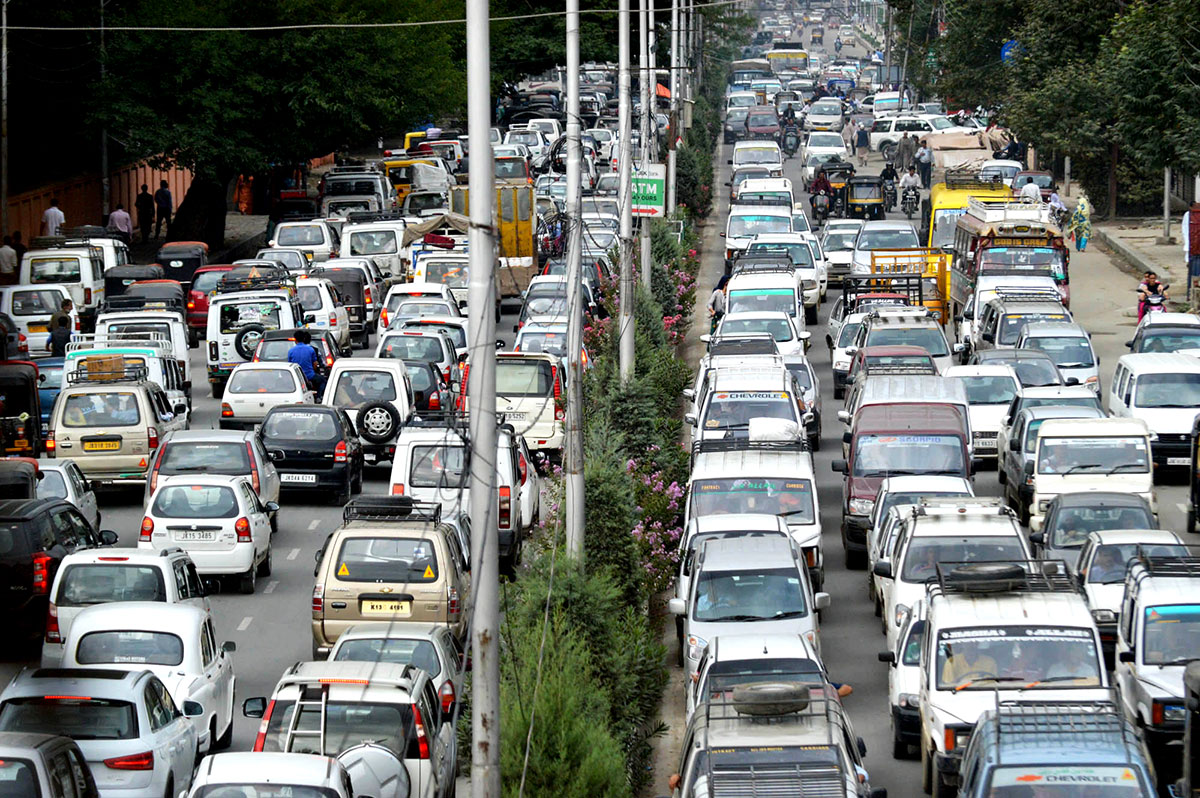by Dr Fiaz Fazili
Incorporating the principles of the Three Rs—Reduce, Reuse, and Recycle—into broader environmental stewardship efforts involves mindfulness towards resource use, energy consumption, and overall material consumption and waste management.

The pursuit of a civilised society, a timeless and noble aspiration, has been championed by individuals, communities, and nations throughout history. While the vision of such a society may vary among individuals, cultures, and societies, common themes and ideals often underpin this collective dream.
An unexpected journey through the streets of what appeared to be a civilised society revealed a series of unpleasant surprises. On my way to the office, an incident occurred that marred the day’s proceedings. Someone, seemingly out of nowhere, chose to throw garbage over a wall, not only soiling my attire but also undermining the care I had taken in selecting my office wear. To mitigate the situation and reach the office on time, I hastened to my garage, intending to travel by a fast-speed car. However, the journey was hindered by chaotic and erratic traffic that materialized seemingly without warning, impeding progress and intensifying morning frustrations.
Approaching the office building, challenges persisted. Navigating through bustling streets became a test of patience when someone bypassed the queue at the entrance gate, blatantly disregarding basic civility. The scene was emblematic of a disheartening lack of adherence to the norms of a civilised society. Upon finally reaching the office premises, further disarray awaited me at the bank counter, where individuals exhibited a blatant disregard for the concept of queuing. Witnessing people brazenly leap ahead in line underscored a stark absence of basic courtesy and order.
Embark with me on an exploration of a revealing moment encapsulated by the four pillars of civilized societies: Rights, Responsibilities, Rules of Law, and Respect for others’ Rights. This journey delves into empathy, understanding, and the nuances of the human psyche that permeate our daily lives.
Instances of societal lapses are apparent, such as individuals neglecting to offer seats on buses to the elderly, pregnant, or disabled. Equally vexing are instances where women refrain from yielding seats to men carrying infants, disabled individuals, or those with small children. The disregard for public spaces, manifested by leaving pets or domestic animals unattended in the streets, evokes a sense of frustration. The juxtaposition of pristine water bodies like Dal or Nigeen Lake, marred by floating debris of empty cans and broken seats after a music event at Ghanta Ghar, vividly illustrates environmental neglect.
Further reflections on societal norms reveal unextinguished streetlights with accessible switches during daylight hours on the way to a nearby mosque, indicating neglect of energy conservation. Passenger buses with foam pilfered from seats and ceramics stolen from hospital washrooms underscore a disregard for public property and communal spaces. The act of throwing garbage in the streets and public areas, coupled with spitting or coughing without consideration for others, represents a failure of civic responsibility.
The culmination of these incidents, including chaotic traffic, queue-jumping, and the general lack of regard for public spaces, paints a disconcerting picture of a community grappling with the foundational values integral to civilized living. Amidst these observations, a pressing question surfaces: Where is the semblance of a civilized society?
In exploring the interpretation or analysis of dreams, it is essential to recognize that not all heroes wear capes. Consideration of the specific imagery and emotions involved in a dream is crucial. Acts of kindness in daily life, such as holding doors open, helping, and practising politeness, contribute to a positive and civil environment.
Noteworthy examples of positive and compassionate aspects in our society emerge when individuals and NGOs volunteer their time and skills during emergencies like fires, floods, or humanitarian crises. Appreciation for different cultures and the celebration of diversity foster understanding and tolerance within societies. Recognizing these positive aspects demonstrates the kindness, empathy, and generosity present in our communities, including efforts towards environmental preservation through activities like tree planting, wildlife conservation, and sustainable practices.
Dreams, often tapping into our subconscious, provide insights into thoughts and feelings. Sharing concerns on platforms like the Senior Citizens WhatsApp group, named “Classroom of Lessons,” underscores the importance of greater awareness and responsible behaviour in public spaces. The narrative emphasizes that the true measure of civilization lies not only in our ability to enjoy cultural events but also in our respect for the environment and shared resources that enable those events.
Individuals, families, communities, and nations possess various powers, falling into categories of “Physical Power,” “Intellectual Power,” and “Spiritual Power.” Transforming dreams into reality can be life-changing, shaping individuals and society in a loosely termed “civilized” manner. Amidst reflections on a tumultuous morning journey, the hope for a more orderly and considerate society seems distant. The imagery of a bridge being too far and the urgency of morning dawn not waiting may suggest a perceived distance or the need for prompt action.
Civilization, for me, entails maintaining harmony with the environment and fostering a sense of responsibility towards the people in one’s society. The essence of “civilian character” lies in the unspoken harmony of the heart—a symphony of kindness, integrity, moral and ethical attributes, sharing, caring, rights, rituals, and traditions. This silent nature underscores that genuine character is often expressed through actions rather than mere words.

Incorporating the principles of the Three Rs—Reduce, Reuse, and Recycle—into broader environmental stewardship efforts involves mindfulness towards resource use, energy consumption, and overall material consumption and waste management. This conscientious approach enables individuals and societies to minimize their environmental impact, a crucial facet in the construction of a civilized society.
The concept of a “civilized society” is subjective, extending beyond political realms and powerful corridors. It varies based on individual perspectives, observations, and personal values. In essence, the pursuit of a civilized society prompts questions about the human qualities and choices that lead to ‘civilized’ behaviour. Why do we sometimes reject these qualities and instead embrace behaviours that lean towards the ‘uncivilized’? This exploration delves into the intricacies of human nature and decision-making.
(A medical doctor, the author is actively engaged in promoting positive perceptions of various moral and social issues. Ideas are personal.)














